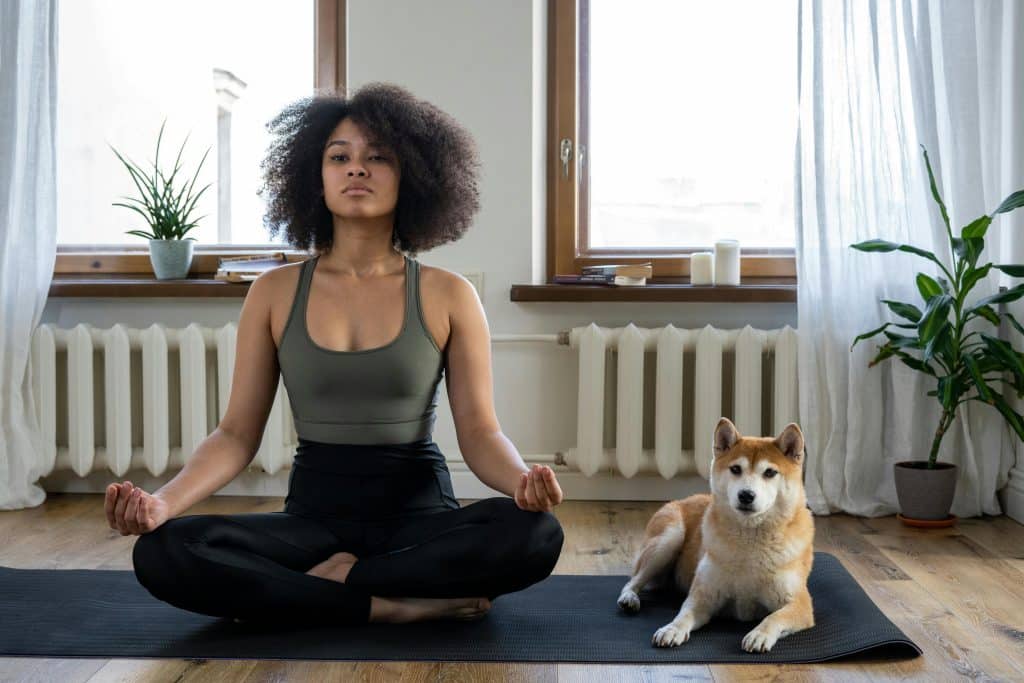As a licensed practitioner who works with kids, I’ve seen firsthand the impact anxiety can have on teens. It’s a challenging experience that can leave them feeling overwhelmed, stressed, and unsure of how to cope. But the good news is, there are many effective anxiety coping skills for teens that can help them navigate these difficult emotions and build resilience. In this guide, I’ll share some of the most helpful strategies I’ve learned through my work with neurodivergent and neurotypical teens alike.
Table of Contents
Understanding Teen Anxiety
Before we dive into the coping skills, it’s important to have a basic understanding of what anxiety is and how it affects teens. Anxiety is a normal human emotion that everyone experiences at times. It’s the body’s way of responding to stress or perceived threats. However, when anxiety becomes excessive, persistent, and interferes with daily life, it may be a sign of an anxiety disorder.
Some common symptoms of anxiety in teens include:
- Constant worry or fear
- Irritability or restlessness
- Trouble concentrating
- Sleep problems
- Physical symptoms like headaches or stomachaches
According to the National Institute of Mental Health, an estimated 31.9% of adolescents have an anxiety disorder. So if your teen is struggling, know that they are not alone and there is help available.
Mindfulness and Meditation
One of the most effective anxiety coping skills for teens is mindfulness and meditation. These practices teach teens to focus on the present moment, rather than getting caught up in worries about the past or future. By learning to observe their thoughts and feelings without judgment, teens can develop a greater sense of calm and perspective.
There are many ways to practice mindfulness, such as:
- Deep breathing exercises
- Body scan meditations
- Mindful walking or eating
- Yoga or tai chi
Encourage your teen to start with just a few minutes a day and gradually build up their practice. There are also many great apps and online resources that offer guided meditations specifically for teens.

Read more: 7 Mindfulness Activities for Kids
Breathing Exercises
When anxiety strikes, one of the first physical symptoms teens may notice is difficulty breathing. Anxiety can trigger the body’s “fight-or-flight” response, leading to shallow, rapid breathing or even hyperventilation. Teaching your teen some simple breathing exercises can help them regain a sense of calm and control in the moment.
One technique is called “square breathing” or “box breathing.” Here’s how it works:
- Inhale slowly for a count of four
- Hold the breath for a count of four
- Exhale slowly for a count of four
- Hold for a count of four
- Repeat for several cycles
Focusing on this rhythmic, deep breathing helps activate the body’s relaxation response and quiet the mind. Encourage your teen to practice this technique regularly, not just when they’re feeling anxious, so it becomes a familiar tool they can rely on.
Journaling and Creative Writing
Sometimes the best way to process difficult emotions is to get them out of our heads and onto paper. Journaling is a powerful anxiety coping skill for teens because it allows them to freely express their worries, fears, and frustrations without judgment. Putting their thoughts into words can provide a sense of relief and make challenges feel more manageable.
Prompt your teen to try journaling for just 10-15 minutes a day, writing about whatever is on their mind. Reassure them that there’s no right or wrong way to do it – they can write in full sentences, fragments, or even doodles and drawings. The goal is simply to create a safe space for self-expression.
In addition to traditional journaling, creative writing can be incredibly therapeutic. Encourage your teen to write poetry, short stories, or even songs as a way to explore their emotions and experiences. According to a 2013 study, expressive writing can lead to improvements in both physical and psychological health.
Physical Activity
We all know exercise is good for our physical health, but it’s also one of the best natural anxiety remedies. When we engage in physical activity, our bodies release endorphins – the “feel good” chemicals that boost mood and reduce stress. Regular exercise can be a game-changer for teens struggling with anxiety.
Help your teen find activities they genuinely enjoy, whether it’s team sports, dancing, hiking, biking, or even just taking the dog for a walk. The key is to make it a consistent part of their routine, aiming for at least 30 minutes of moderate exercise most days of the week.
If your teen is resistant to traditional exercise, get creative! Have a family dance party, set up a backyard obstacle course, or challenge them to a push-up contest. Making physical activity fun and social can increase their motivation to stick with it.
Healthy Lifestyle Habits
In addition to the targeted coping skills we’ve covered, some general lifestyle habits can have a big impact on teen anxiety. Encouraging your teen to prioritize their physical health can create a solid foundation for emotional wellbeing.
Some key areas to focus on include:
- Nutrition: Eating a balanced diet with plenty of fruits, vegetables, whole grains, and lean protein can help stabilize mood and energy levels. Limit processed foods and sugary snacks.
- Sleep: Teens need 8-10 hours of sleep per night for optimal mental health. Establish a regular sleep schedule and create a relaxing bedtime routine.
- Hydration: Even mild dehydration can affect mood and concentration. Encourage your teen to drink plenty of water throughout the day.
- Screen time: Excessive screen time, especially before bed, can interfere with sleep and increase anxiety. Set reasonable limits and encourage alternative activities.

Read more: Kids Mental Health Test
Building a Support System
Finally, one of the most important anxiety coping skills for teens is learning to reach out for support. Let your teen know that they don’t have to face their struggles alone – there are people who care about them and want to help. This includes family, friends, teachers, coaches, and mental health professionals.
Normalize conversations about mental health in your household and model healthy coping strategies yourself. If you’re open about your own challenges and the tools you use to manage stress, your teen will feel more comfortable seeking support when they need it.
Also, consider connecting your teen with a therapist who specializes in anxiety disorders. A professional can provide additional coping strategies and help your teen work through the root causes of their anxiety. Cognitive behavioral therapy (CBT) is an evidence-based treatment that has been shown to be highly effective for anxiety.
Tired of Emotional Meltdowns?
Goally’s Mood Tuner app has activities for kids with BIG emotions. Teach kids how to tune their mood with Goally. See fewer meltdowns.
The Mood Tuner app encourages kids to look inwards and identify their feelings, helping them understand what’s going on inside. Once they’ve recognized their emotions, they can choose from a 20+ activities designed to help them self-regulate and find their balance.

Parenting a teen with anxiety is no easy feat, but by arming them with these coping skills, you’re giving them invaluable tools for navigating life’s challenges. Remember, progress isn’t always linear – there will be ups and downs along the way. Celebrate the small victories and continue to offer your unconditional love and support. With patience, perseverance, and a strong toolkit of anxiety coping skills for teens, your child can learn to thrive in the face of anxiety. You’ve got this!
Resources:
- Anxiety and Depression Association of America
- National Alliance on Mental Illness
- HealthyChildren.org
FAQs about Anxiety Coping Skills for Teens
What are some effective anxiety coping skills for teens?
Breathing exercises, mindfulness practices, physical activity, journaling, and seeking support from trusted adults or peers are all effective coping strategies for teens.
How can teens learn to recognize their anxiety triggers?
Encourage teens to identify situations, thoughts, or behaviors that trigger their anxiety, and help them develop self-awareness through reflection and observation.
Are there specific relaxation techniques that work well for teens?
Techniques such as progressive muscle relaxation, guided imagery, and visualization can help teens relax their bodies and calm their minds during moments of anxiety.
How can parents or guardians support teens in developing coping skills?
Create an open and supportive environment for teens to express their feelings, encourage healthy lifestyle habits, and model positive coping strategies in your own behavior.
Where can teens find additional resources for learning anxiety coping skills?
Teens can explore online resources, books, support groups, therapy, and school counselors to access information and guidance on developing effective anxiety coping skills.

Hennah is an experienced writer and researcher, helping children with autism, ADHD, and other neurodivergent conditions. As a blog contributor for Goally, she combines her deep understanding of neurodiversity with practical advice, offering valuable insights to parents and educators.





